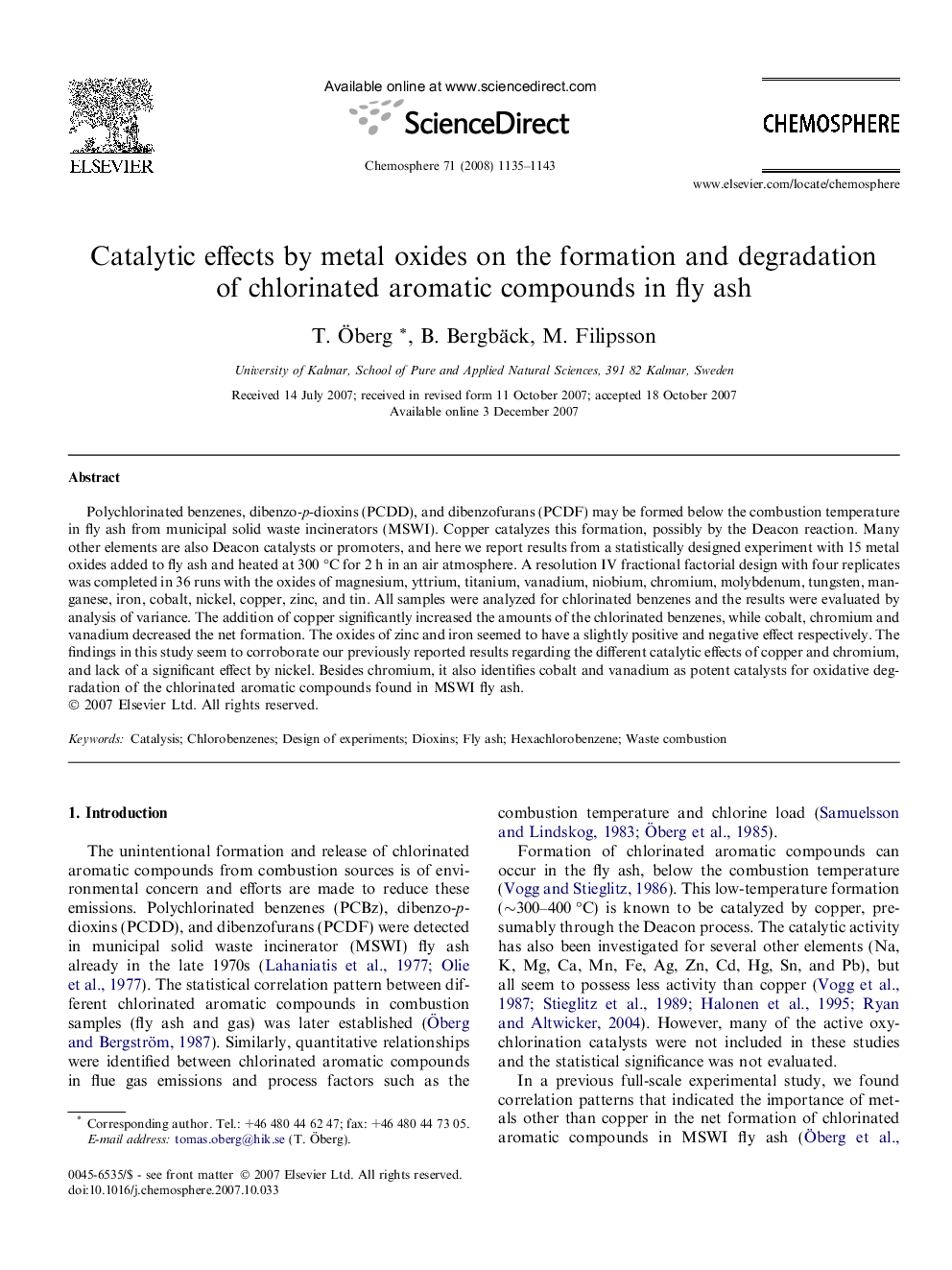| کد مقاله | کد نشریه | سال انتشار | مقاله انگلیسی | نسخه تمام متن |
|---|---|---|---|---|
| 4413792 | 1307690 | 2008 | 9 صفحه PDF | دانلود رایگان |

Polychlorinated benzenes, dibenzo-p-dioxins (PCDD), and dibenzofurans (PCDF) may be formed below the combustion temperature in fly ash from municipal solid waste incinerators (MSWI). Copper catalyzes this formation, possibly by the Deacon reaction. Many other elements are also Deacon catalysts or promoters, and here we report results from a statistically designed experiment with 15 metal oxides added to fly ash and heated at 300 °C for 2 h in an air atmosphere. A resolution IV fractional factorial design with four replicates was completed in 36 runs with the oxides of magnesium, yttrium, titanium, vanadium, niobium, chromium, molybdenum, tungsten, manganese, iron, cobalt, nickel, copper, zinc, and tin. All samples were analyzed for chlorinated benzenes and the results were evaluated by analysis of variance. The addition of copper significantly increased the amounts of the chlorinated benzenes, while cobalt, chromium and vanadium decreased the net formation. The oxides of zinc and iron seemed to have a slightly positive and negative effect respectively. The findings in this study seem to corroborate our previously reported results regarding the different catalytic effects of copper and chromium, and lack of a significant effect by nickel. Besides chromium, it also identifies cobalt and vanadium as potent catalysts for oxidative degradation of the chlorinated aromatic compounds found in MSWI fly ash.
Journal: Chemosphere - Volume 71, Issue 6, April 2008, Pages 1135–1143